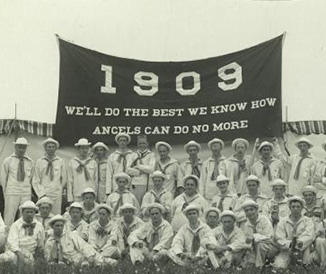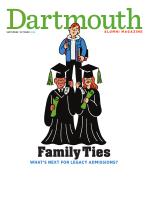
Shabbirthday
December 18, 2019.
Twenty-four hours ago, Matt and I walked out of the hospital with Havi in our arms, having just been told that she will die. Now we’re walking back in, for the test—called the chorionic villus sampling—that will tell us whether the baby I’ve been carrying for eleven weeks will also die of Tay-Sachs disease.
This is the last place I want to be. I don’t have to ask to know that Matt feels the same way.
We park in the familiar lot at 75 Francis Street and walk through the hospital’s front door. The chaos of the lobby is a blur that can’t compete with the clanging thoughts in my head. We ride the elevator to the third floor, follow the signs to the high-risk obstetrics clinic. A young woman calls us as soon as we’re settled into the waiting room and introduces herself as Melissa, our genetic counselor. She leads us into her office and nods Matt and me into soft, matching armchairs. A moment later we’re joined by Dr. Samantha Grant, my new obstetrician.
My body relaxes a bit. I can see Matt relaxing, too. I sense that I’m in a safe place and in trustworthy hands. Melissa and Dr. Grant ask how we are and listen intently as we stumble through describing our overturned lives. They explain what the next few hours are going to look like. The procedure itself is extremely safe, they say, and will last only a few minutes. You’ll feel fine afterwards.
Melissa walks us down the hall and into a dimly lit exam room. Waiting in the room is a team of doctors: my new OB, two residents, and a senior attending. I wonder if I’ve now become one of those fascinating teaching cases that Matt used to talk about when he was in residency.
I climb up onto the hospital bed and pull up my shirt to expose my belly. A fuzzy ultrasound image of my uterus snaps into view on the screen mounted to the wall. The sensation of the ultrasound probe is different from when I was pregnant with Havi. This time I feel fear, not excitement.
“I’m going to insert a needle into the womb,” Dr. Grant says. “I’ll guide it to the placenta using the image on the ultrasound scan, then take a sample of cells from the placental tissue. Please let me know if you feel any pain at all.” Matt holds my hand. I lie back, and within minutes, it’s done. “Everything went great,” Dr. Grant says, helping me sit up. “We’ll know the results in three or four weeks. But we’ll have you back in before then for a more in-depth conversation about your options based on these results. Any questions?”
How do we live like this? I want to answer. But I don’t. Matt and I walk back to our car in silence, hand-in-hand.
I close my eyes and see a movie of the future we’ll never know. We’ll never see Havi’s first steps. Never hear her say Mamma or Dadda.
As Matt steers the car onto the Jamaica Plain Parkway, I’m relieved to let the hospital complex disappear from our view. Tall birch and oak trees line the road, their leafless limbs making this winter day feel even colder. I reach beneath my sweater to trace the small bandage on my lower abdomen. Three to four weeks of holding my breath, taking care of our dying daughter, wondering if I’ll have to face the decision to abort my second child.
Matt startles me, banging his fist against the steering wheel, staring at the road with tears streaming down his cheeks.
“How do we do this? How do we watch our daughter die?” he weeps. I reach over and put my hand on his thigh.
“I know,” I whisper. How can this be? How can I be sitting in this car with my husband, driving home from the hospital, in this terrifying situation? As we drive past the pond, the baseball diamond, the grassy field where kids play soccer in the spring, I close my eyes and see a movie of the future we’ll never know. We’ll never see Havi’s first steps. Never hear her say Mamma or Dadda. Never watch her play on that grassy field or make friends or get on the school bus. We’ll never help her with her algebra homework, or take her to dance class, or…
I open my eyes, but the movie won’t stop. I feel foggy and disconnected. Life—my life, her life, our life as we’d planned it, with its moments and milestones, is collapsing in space. I pull my knees up to my chest and rest my head on my knees. Out of the corner of my eye I see Matt’s hand gripping the steering wheel so hard, his knuckles are white. His anguished question hangs in the silence between us.
“I don’t know, M. I don’t know.” As I’m fighting tears, something shifts in me. Somehow, suddenly, I do know. “I know what we’ll do,” I say. “We’ll celebrate the shit out of her. We’ll squeeze every ounce of beauty and love into her for as long as we can.”
Matt looks over at me with wet eyes. I keep going, through the knot the size of a golf ball in my throat.
“Every Friday night.” I’m winging it, picking up speed as I go. “We’ll celebrate every Shabbat. Like it’s Havi’s birthday. We’ll celebrate all the birthdays she would’ve had. We’ll invite our people.”
“Like a combination of Shabbat and birthday?” Matt glances over at me. “A … Shabbirthday?!”
I smile. It hurts.
“That’s good. A Shabbirthday,” I say. “That’s how we’ll do this. From one Shabbirthday to the next.”
* * *
Three days after learning that Havi has only a year or so to live, we celebrate her first Shabbirthday. A dozen of her aunts, uncles, grandparents, and close friends descend on our home. No one pretends the heartache isn’t there. Havi is showered with gifts: a onesie; cake and balloons; a plush toy avocado, a warm challah; an elegant gray dress with white leggings—her first Shabbirthday outfit. Havi eats two helpings of sweet potatoes and giggles her way through the extra frosting that Matt feeds her with his finger. Her body vibrates in her seat; she kicks her legs with excitement.
Our home feels full and warm. Everyone here is full and warm, nestling together in the flickering light of the Shabbat candles, and the reality of Havi’s terminal illness. None of us masks our pain with fake smiles. None of us hides from the joy and laughter that bubble up from our deepest, most pain-filled inner selves. Havi spends every moment in the arms or the lap of someone who loves her.
By 10:00 p.m., our loved ones have gone home. Havi is asleep. Matt and I sit down to write about the night.
Since that first Shabbirthday, we celebrate Havi that way every Friday night, no matter what we’re doing or where we are; no matter what’s happening in the world or in our lives. Each week we invite friends and family for good food, wine, and of course, ice cream for dessert. We listen to music, dance, and read poetry. When everyone goes home, Matt and I write a letter to Havi describing the evening we just shared. Every Saturday morning, we post that letter on CaringBridge, sharing news of Havi and the transformative and painful life lessons we’re learning as we accompany her through her life.
Excerpted from Fifty-seven Fridays: Losing Our Daughter, Finding Our Way (Monkfish Book Publishing Company, 2024) by Myra Sack. © Myra Sack, used with permission from the author.
Myra Sacks, an All-American and former captain of the Dartmouth women’s soccer team, is a certified compassionate bereavement care provider and coach. She founded E-Motion, a nonprofit social support organization that incorporates movement to help people cope with grief and honor their losses. She lives with her husband, Matthew Goldstein, and their two younger children, Kaia and Ezra, in Jamaica Plain, Massachusetts. A bench dedicated in memory of their late daughter Havi overlooks Burnham Field on campus.










